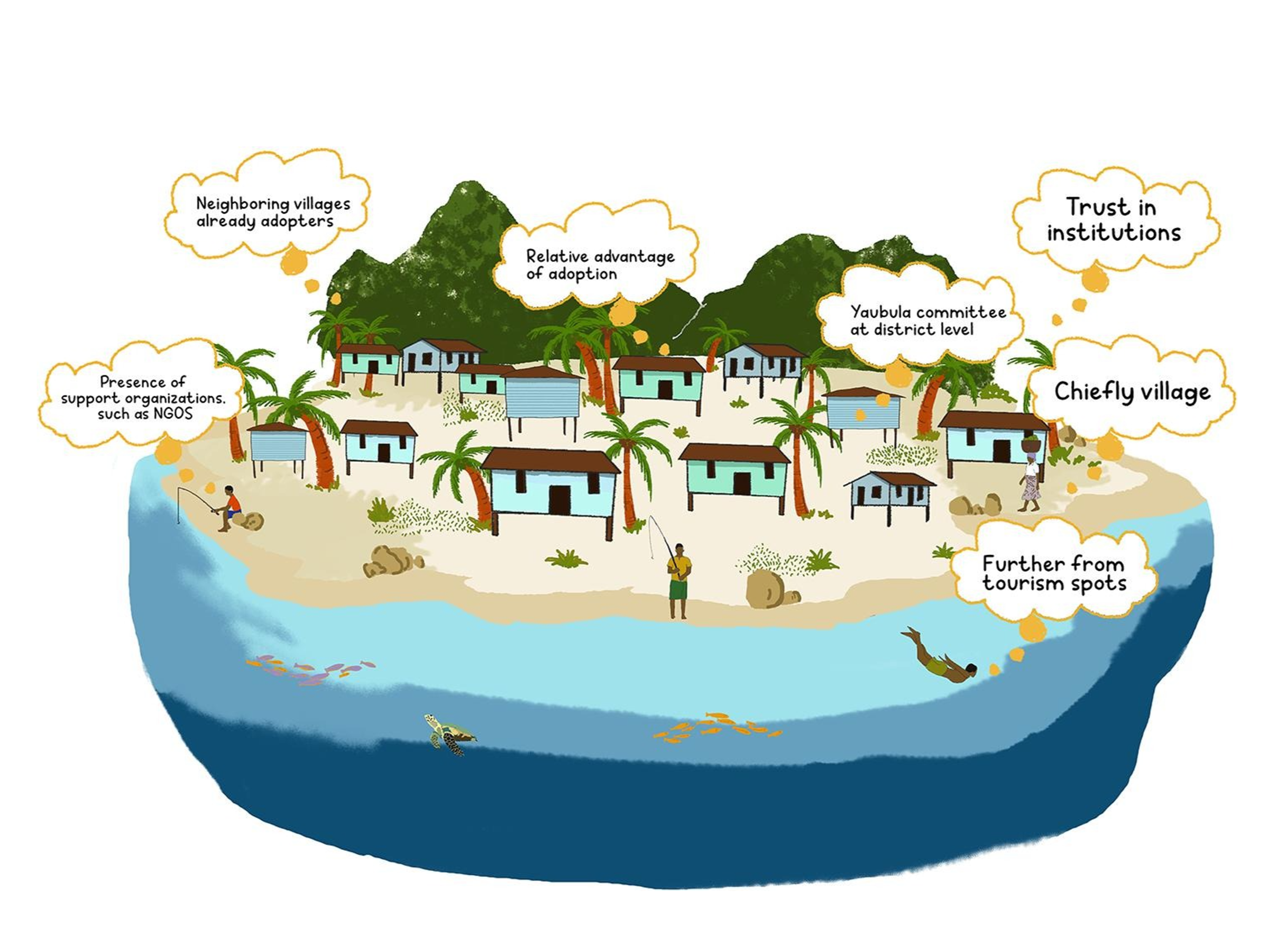LOCALLY DRIVEN MARINE RESOURCE MANAGEMENT
Local fisheries work to restore marine ecosystems, alongside providing important income and subsistence for local communities, but top-down regulatory approaches for these systems are not always just or effective. We work across Fiji and the Philippines to understand how such initiatives have scaled, and their ecological and social impacts.
Characteristics of villages that have adopted Locally Managed Marine Areas in Fiji (graphical abstract from Jagadish et al., 2024 Global Environmental Change).
Marine ecosystems are experiencing unprecedented pressures. For example, >60% of the world’s coral reefs are under threat and 50% of mangrove ecosystems are at risk of collapse. Protection of marine ecosystems is therefore critical to successful conservation of biodiversity.
Local fisheries work to restore marine ecosystems, alongside providing important income and subsistence for local communities, but top-down regulatory approaches for these systems are not always just or effective. We work across Fiji and the Philippines to understand how such initiatives have scaled, and their ecological and social impacts.
One seminal work published in Global Environmental Change showed the importance of social connections alongside perceptions of overall benefits and support to the spread of Locally Managed Marine Areas - a community-based resource management initiative which scaled rapidly in Fiji in the last 20 years. In Nature Sustainability, we also show that despite widespread adoption, the impacts of engagement were limited to increasing participation, knowledge, funding and management support with limited social and ecological outcomes. A greater engagement of women – who are still disenfranchised – is likely to lead to more benefits.
These insights can inform the design and implementation of Indigenous-led approaches that can scale appropriately and respond to the global environmental crisis.
Collaborators:
Anna Freni-Sterantino (The Alan Turing Institute, UK), Hugh Govan (The University of the South Pacific, Fiji), Sangeeta Mangubhai (Talanoa Consulting Fiji; Wildlife Conservation Society, Fiji), Tanya O’Garra (National University of Singapore), Margaret Tabunakawai Vakalalabure (Fiji Locally Managed Marine Area Network; World Wide Fund for Nature, Fiji), Alifereti Tawake (Fiji Locally Managed Marine Area Network; Locally Managed Marine Area Network International Trust, Fiji)









